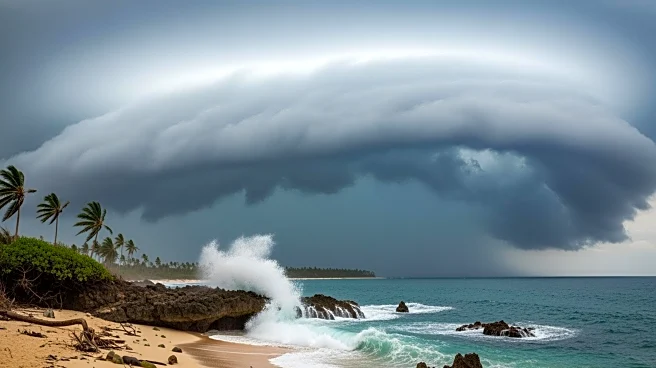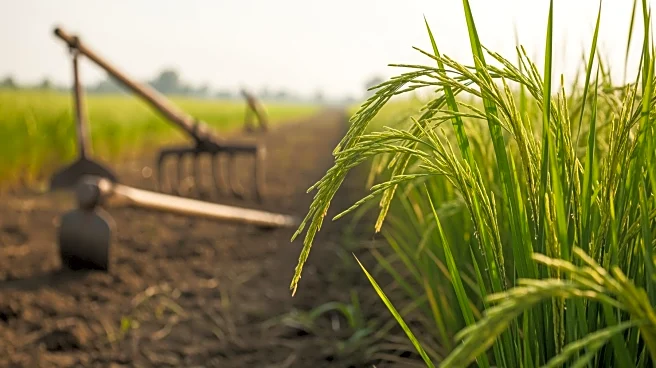What's Happening?
Hurricane Melissa, a Category 5 storm, struck Jamaica on October 28, causing significant damage and leading to at least 28 deaths. Cherie Wiles, a tourist from Hull, experienced the hurricane firsthand while on holiday in Jamaica. She described the ordeal
of barricading herself in a hotel bathroom as winds reached up to 185 mph. The storm caused extensive damage, including flooding and uprooted trees, and left many people in need of assistance. Wiles, who returned to the UK, is now advocating for aid through organizations like the Red Cross to help those affected by the hurricane.
Why It's Important?
The impact of Hurricane Melissa highlights the vulnerability of regions like Jamaica to severe weather events, especially during hurricane season. The destruction caused by the storm underscores the need for robust disaster preparedness and response strategies. The appeals for aid are crucial in providing immediate relief to those affected, addressing urgent needs such as food, water, and shelter. This event also serves as a reminder of the broader implications of climate change, which is expected to increase the frequency and intensity of such storms, affecting vulnerable communities worldwide.
What's Next?
Efforts to provide aid and support to the affected regions are ongoing, with organizations mobilizing resources to assist in recovery. The focus will be on rebuilding infrastructure and providing long-term support to restore normalcy. Additionally, there may be discussions on improving disaster preparedness and resilience in hurricane-prone areas to mitigate future impacts. The international community may also engage in dialogues on climate change adaptation and support for vulnerable nations.
Beyond the Headlines
The ethical dimension of disaster response is significant, as it involves ensuring equitable access to aid and addressing the needs of marginalized communities. The cultural impact on Jamaica, a popular tourist destination, may also be profound, affecting its economy and social fabric. Long-term shifts in climate policy and international cooperation could be influenced by the increasing frequency of such events.














